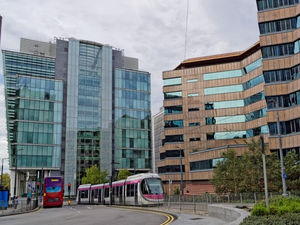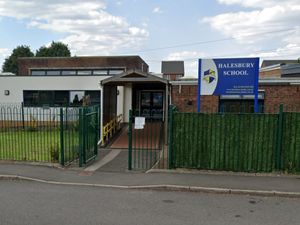Gavin Williamson disputes report condemning Government's handling of exams crisis
Gavin Williamson today angrily rejected the findings of a report that claims there was a “refusal” to act as schools fell into a Covid crisis.
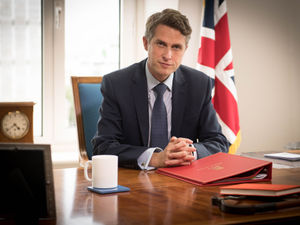
The report, by the independent think tank The Institute for Government, says the Education Secretary was given a “clear steer” from Number 10 not to make contingency plans on school closures or the scrapping of exams.
And it claims the South Staffordshire MP was “not directly involved” at key education meetings held as Britain fell into crisis.
But Mr Williamson today angrily refuted the allegations made in the report. He said contingency plans had been made public and that action was being taken to help students catch up. He rejected accusations that he had not been present at important meetings. He said he had always put the safety of pupils and staff first in all his decisions and had also been transparent with British public.
He added: “Contrary to the claims made in this report, my department did publish contingency plans for schools in August last year, so schools knew what to do if there were local outbreaks.”
The report paints a picture of a lack of leadership within the Department of Education and a blunt refusal by Prime Minister Boris Johnson to accept the severity of the situation or to engage with local authorities and their directors of public health.
It says parents and pupils were left “bewildered and floundering”, as lessons regarding school closures and examinations from the first lockdown were “not learned” leading to a case of “pause, rewind, repeat”.
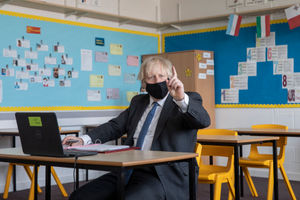
Coming ahead of this month’s A-level and GCSE results, the report entitled ‘Schools and coronavirus: The Government’s handling of education during the pandemic’ described the period following the March 2020 closure of England’s schools announced by the Prime Minister as “easily the most disruptive period in children’s education since at least the start of the Second World War”.
It stated: “Its most important conclusion is that the most unforgivable aspect of what happened is not just the failure to make contingency plans in the summer of 2020 but the refusal to do so – when it was already obvious that fresh school closures might well be needed, and that exams might have to be cancelled again.
“Lessons were not learned from the first lockdown, with the result that, for both school closures and exams, the story from July 2020 to January 2021 was a case of ‘pause, rewind, repeat’.
It added: “Well into March 2021, and indeed beyond, pupils taking GCSEs, A-levels and BTecs remained unclear about precisely how they were to be assessed. At times it felt as though the school system was in chaos.”
The report notes a “commendably swift decision was taken at the start on the definition of key workers whose children could be in school”, adding that the “supply of laptops for remote learning was, perhaps unavoidably, slower than anyone would have liked”.
However, it draws particular attention to the “highly centralised approach” to dealing with 24,000 schools and “tensions between No 10 and the Department for Education.
Gavin Williamson, it adds, did not appear to be in direct control of the situation early in the pandemic, adding he “appears not to have been directly involved in any of the key meetings ahead of the original decision to close schools in March 2020”.
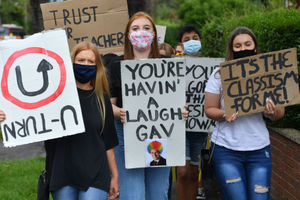
He was targeted personally by students when further chaos came from results that were decided by a formula, leading to many students being effectively downgraded. Students marched on Mr Williamson’s Codsall home and there followed a U-turn in which exam grades were instead decided by teacher assessment.
The report goes on to say there was a “refusal to trust local authorities and a failure to engage effectively with them, and their directors of public health, in ways that might have allowed a more nuanced and better response.
“Dreadful communications. Repeated declarations that schools would open or close, or that exams would be held – despite evident uncertainties – until reality struck. The result was U-turn after U-turn, with pupils, parents and teachers left bewildered and floundering time and again.”
The report includes claims from a Number 10 source over Boris Johnson’s approach to contingency planning. It notes: “A No 10 source says that ‘the clear steer’ that officials received from the Prime Minister was not to make contingency plans. Schools were going to reopen. Exams would be held.
“The view was that ‘if you prepare for these things not happening, then the outcome is that they are far more likely not to happen ... people will look for the easy way out and take it’. According to this insider, the Prime Minister’s default is to bluff. To talk up things to such an extent that they will happen through the force of his own personality. Which is a very powerful tool. But the virus doesn’t listen to those messages.”
Labour cabinet member for education in Telford, Shirley Reynolds, said the report showed Mr Williamson is responsible for “injustice and chaos surrounding A-level and GCSE results”. She said his “inability to take decisive decisions” had impacted on schools across Telford and Shropshire, adding: “He must be held to account”.
The Education Secretary dismissed many of the points raised in the critical report.
He said: “The safety of staff and pupils has always been at the forefront of my decision making throughout the pandemic. Contrary to the claims made in this report, my department did publish contingency plans for schools in August last year, so schools knew what to do if there were local outbreaks.
“Thanks to the hard work of staff, 99 per cent of schools remained open during the autumn term last year.”
A spokeswoman for Mr Williamson’s department added that the pandemic had a huge impact across society, and particularly in education.
She said: “We want to thank teachers, parents and pupils for their resilience and flexibility over the last 18 months.
“Contingency plans for restrictions on schools opening in the 2021/22 academic year were first published in August 2020, and contingency plans for qualifications in 2021 were first discussed with Ofqual in October 2020.”
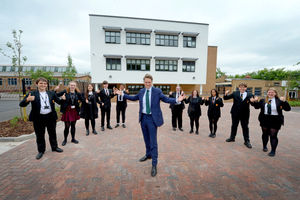
She said the department had acted quickly to minimise disruption, adding: “We have acted swiftly at every turn to minimise the impact on children’s education and wellbeing and help keep pupils in face-to-face education as much as possible. We provided 1.3 million laptops and tablets to disadvantaged students, funded Oak National Academy to provide video lessons and made sure students could receive exam grades that helped them progress to the next stage of education or work.”
She said 100 hours of extra tuition and summer schools had been funded in “ambitious catch-up plans” to support pupils.
Councillor Dr Michael Hardacre, Labour cabinet member for education in Wolverhampton, praised schools across the city – and pupils – for their response throughout the pandemic.
But said: “It is difficult to disagree with the report – schools have been labouring under great difficulties to ensure children’s qualifications match their abilities.”

